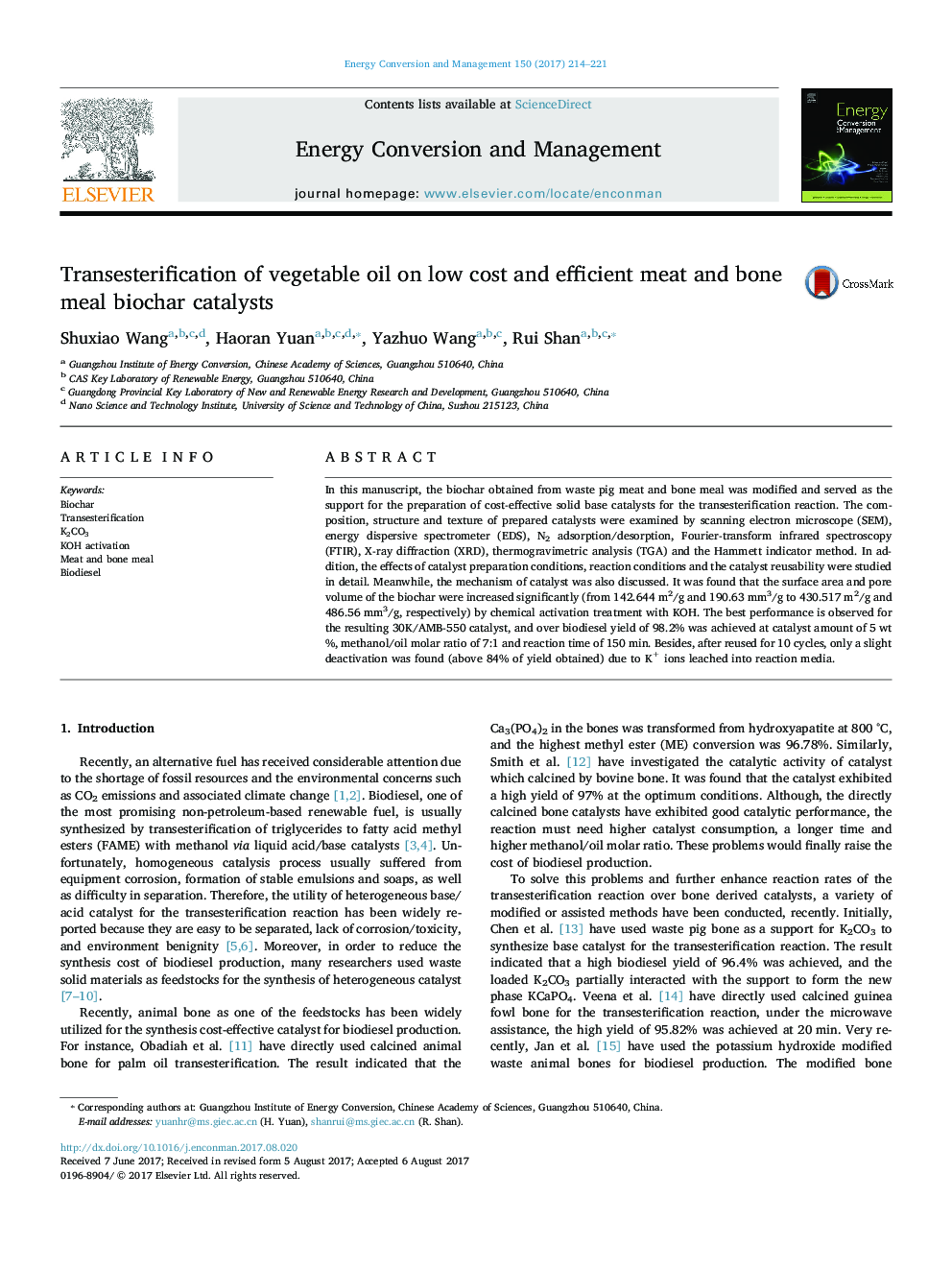| Article ID | Journal | Published Year | Pages | File Type |
|---|---|---|---|---|
| 5012230 | Energy Conversion and Management | 2017 | 8 Pages |
Abstract
In this manuscript, the biochar obtained from waste pig meat and bone meal was modified and served as the support for the preparation of cost-effective solid base catalysts for the transesterification reaction. The composition, structure and texture of prepared catalysts were examined by scanning electron microscope (SEM), energy dispersive spectrometer (EDS), N2 adsorption/desorption, Fourier-transform infrared spectroscopy (FTIR), X-ray diffraction (XRD), thermogravimetric analysis (TGA) and the Hammett indicator method. In addition, the effects of catalyst preparation conditions, reaction conditions and the catalyst reusability were studied in detail. Meanwhile, the mechanism of catalyst was also discussed. It was found that the surface area and pore volume of the biochar were increased significantly (from 142.644Â m2/g and 190.63Â mm3/g to 430.517Â m2/g and 486.56Â mm3/g, respectively) by chemical activation treatment with KOH. The best performance is observed for the resulting 30K/AMB-550 catalyst, and over biodiesel yield of 98.2% was achieved at catalyst amount of 5Â wt%, methanol/oil molar ratio of 7:1 and reaction time of 150Â min. Besides, after reused for 10 cycles, only a slight deactivation was found (above 84% of yield obtained) due to K+ ions leached into reaction media.
Related Topics
Physical Sciences and Engineering
Energy
Energy (General)
Authors
Shuxiao Wang, Haoran Yuan, Yazhuo Wang, Rui Shan,
